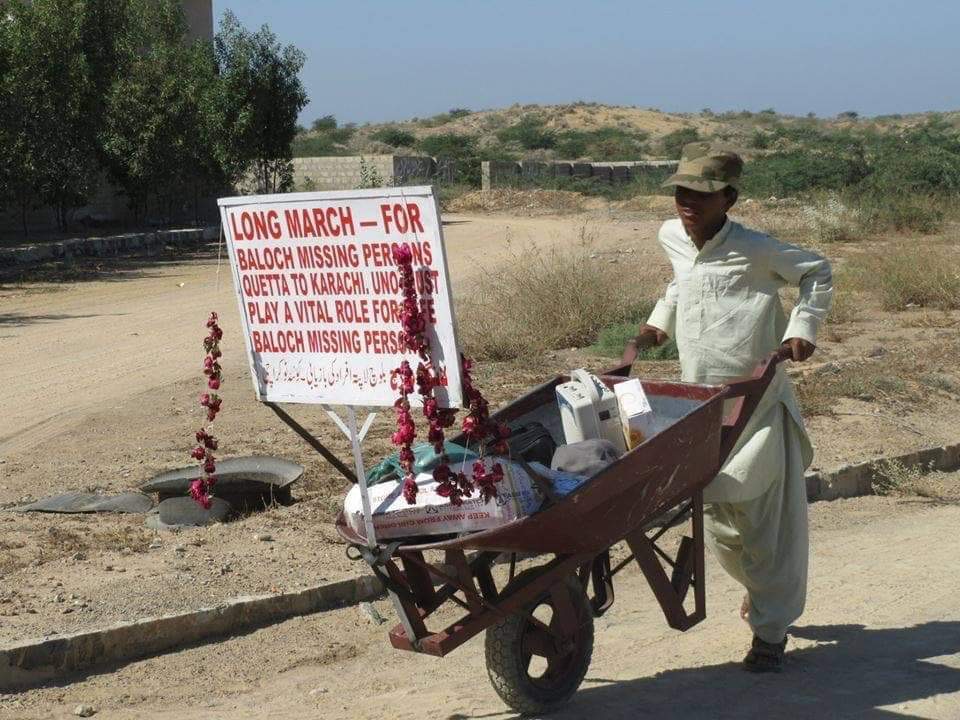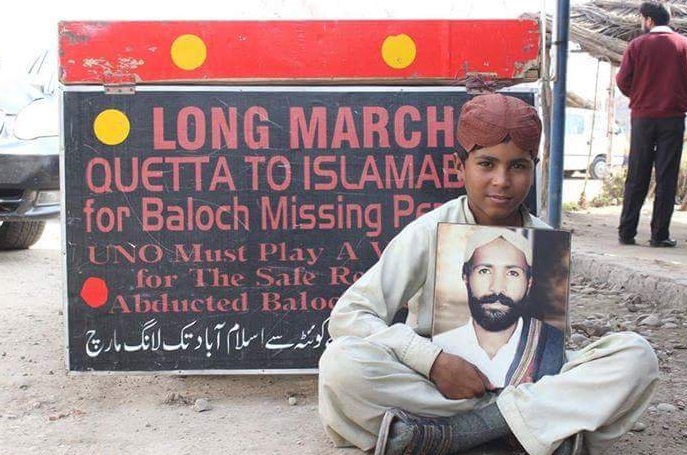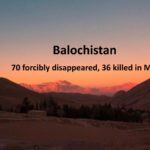Sixteen years old human rights activist, Ali Haidar went missing from Gwadar Balochistan, reportedly since Sunday, 16 June 2019. It is believed that he is the latest victim of Pakistani army’s decades long practice of enforced disappearances.
Ali Haidar came into the limelight when he participated in a more than 2000 km historical long march from Quetta to Islamabad via Karachi in 2014 for the release of his father who was abducted by the security forces from a bus travelling to Gwadar. He was 11 years old then and a student of grade four.
The Long march was arranged by Voice for Baloch Missing Persons (VBMP), a group consisting of family members of missing persons of Balochistan. Ali Haider could be seen pushing a trolley during the group’s months long march from Quetta to Islamabad. Despite the long march, Ramzan Baloch who was abducted by military in July 2010 is missing till date.

Ali Haidar’s abduction is also significant since he is also an eyewitness of his father’s abduction. Describing the events of his father’s abduction in a TV interview ,he said “they (military personnel) struck him (the father) with sticks and kicks and punches and after wounding him badly dragged him – all in front of me”.
Ali Haidar’s abduction is viewed by many human rights activists as a tactic to apply maximum pressure on the families of missing persons in order to silence them. The families had constantly been raising their voice for the safe recovery of their loved ones. Family members of some disappeared persons are sitting in a protest camp in front of Quetta Press Club since more than a decade. But, since November last year, the camp gained momentum as female family members from far plunged areas joined the camp stirring a new wave of peaceful protests against enforced disappearance of their loved ones.
In Balochistan, the police, judiciary and parliament have been non-cooperative in the case of missing persons as none of the institutions has the courage to stand against the military. The families of victims have continuously staged protests, organized press conferences as the only mean available to bring the cases of enforced disappearances on record.


